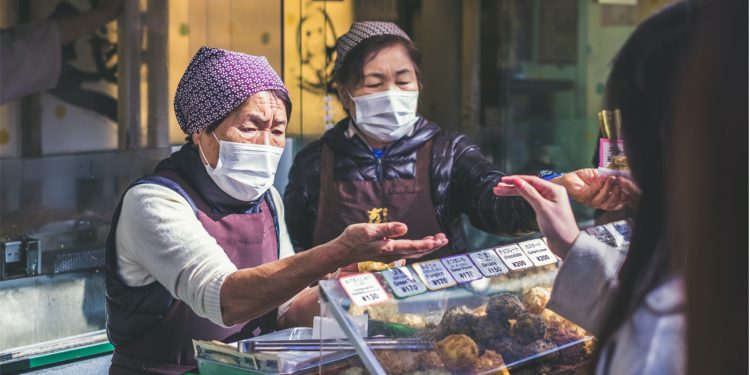One of the most unsettling things I have read about the impact of Covid-19 – and there are many – is the report published by CARE International last month Left Out and Left Behind: Ignoring Women Will Prevent Us From Solving the Hunger Crisis (August 2020).
It doesn’t hold back. Despite being the backbone of the food system, too many women have lacked access, information, and inputs needed to fight food insecurity and malnutrition during the pandemic. They have struggled disproportionately with food production. Rising food shortages mean they are at even greater risk of gender-based violence and mental health problems.
They have struggled to afford a balanced diet and so often they eat last and least. In some cases they are not even permitted to register for Covid-19 safety net programs. Yet a tiny fraction of international reports on the coronavirus response propose “concrete actions to resolve the gender inequalities crippling food systems.”
The message is clear: deep gender inequities in food have only gotten worse and the international community has not stepped up to address them.
But then, a bit further down, another finding, very striking: “Women and girls are … already leading the charge to meet Covid-19-related challenges. Women leaders at all levels are finding solutions: from planting crops during curfew to keeping markets open, to supporting the poorest people in their communities.”
The implication here is clear, too: despite the structural barriers they face, women still exhibit leadership behaviours. It takes competence, adaptability, resilience, collaboration and ingenuity to solve problems in a crisis.
It’s an implication that also emerged strongly from a webinar I tuned into this week on gender and food environments. Hosted by the International Development Research Centre (IDRC), the Fundación InterAmericana del Corazón (FIC) Argentina, Centro de Estudios de Estado y Sociedad (CEDES) and Instituto de Efectividad Clínica y Sanitaria (IECS) presented their latest study from low-income communities in Buenos Aires confirming, perhaps, what was predictable: women lead the provisioning and preparation of food for their households. They decide what to buy, cook. They take the lead in asking for help when they need it. And importantly – especially given the current crisis – they participate in social networks and work collectively to provide food to their local communities.
This is leadership. Getting things done by building coalitions, motivating collective action with purpose, staying energised and positive when things get tough.
These behaviours have done so much to solve problems during Covid-19. UN Women gave a further example this week (September 14) in their story about the “agile adaptation” shown by a women’s group in Indonesia in distributing food in their local communities. And, I would argue, they are the very behaviours needed to lead the journey towards a well-nourished world.
Tackling the plight of the global diet, malnutrition, and the food systems and inequities that exacerbate them, is a hugely difficult, complex task, full of potential conflict.
Women belong in all places where decisions are being made
It needs both vision and an ability to navigate the many nuances involved. It needs leadership honed through a grounded understanding of the everyday experience of acquiring, preparing, eating, growing and providing food. It needs a leadership that goes beyond fields, homes and communities, and enters too into the political and economic realm.
To paraphrase Ruth Bader Ginsburg, the US Supreme Court judge who passed away on Friday, leadership behaviours so often used by women “belong in all places where decisions are being made.”
This means we need to do more to name those behaviours, nurture them, and elevate them into our own workplaces as well as into the corridors of power.
This is why my colleague Dr Shu Wen Ng and I have started a conversation with a group of women who work in food and nutrition across the world. We are just getting started. But we have already learned much from each other (informing so much of this blog).
By being curious about ways to lead, open about our own strengths and struggles, we hope to sow the seeds of a leadership movement, provide a nurturing space where effective leadership behaviours can thrive, where we can support each other as we make inevitable mistakes, and work strategically to break down the structural barriers out there.
We are convinced that the right type of leadership is lying latent. Learning from the skills and behaviours that have proved effective on the ground, nurturing them upwards, elevating them into decision-making spaces and our own workplaces, will only help us take the right steps forward.
This is not just a women’s agenda, important though that is. It’s a leadership agenda, a call for better decisions about the food we eat through more effective leadership. It’s about generating greater individual and collective awareness about the type of leadership needed for real change. It’s about taking the unsung leadership behaviours that have served communities so well during COVID-19, recognising them, crediting them, and enabling them to thrive.
This blog first appeared here where readers are encouraged to join the conversation. I’d like to thank Shu Wen and the other colleagues taking the initiative forward. The ideas in this blog would not have been possible without our collective learning.























